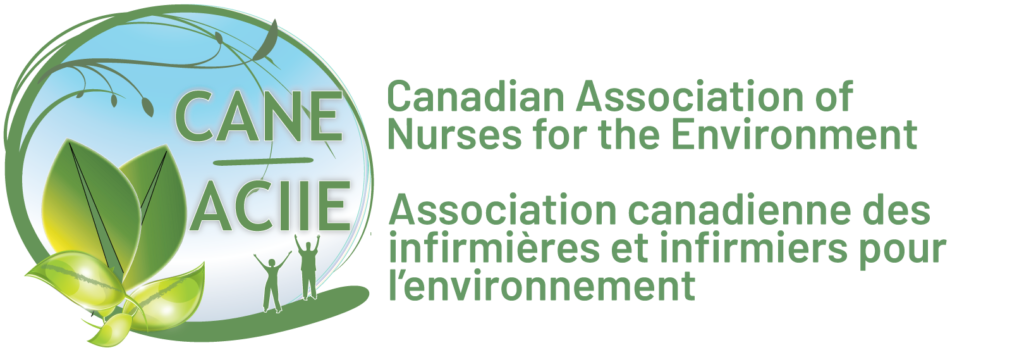
Description:
This webinar introduces the Planetary Health Education Framework (PHEF) to Nurse Educators. The PHEF is a transdisciplinary effort that aims to guide the education of global citizens, health practitioners, and professionals to address the complex Planetary Health challenges of our world today. The framework can be understood as a common foundational language that serves as the blueprint for diverse education strategies.
The approach for developing the planetary health education framework built upon the earlier work of the 12 cross-cutting principles for planetary health education. A major focus of the education framework is to provide a tool towards the achievement of the UN Sustainable Development Goals (SDGs), and the Intergovernmental Science-Policy Platform on Biodiversity and Ecosystem Services (IPBES).
The five main domains proposed in this framework will be described, as they are the essence for planetary health knowledge, values, and practice. These five domains are: interconnection within Nature; the Anthropocene and health; system thinking and complexity; equity and justice; and movement building and system change. The interdependent and interconnected nature of each of the domains becomes the core of the framework.
This framework looks beyond thematic areas of interest or a prescriptive list of competencies, moving towards the recognition of the diverse inquiries that can shape Planetary Health Education. The PHEF domains can be applied to inform education inclusive of nursing research, education, advocacy/policy, and practice.
(To learn more about the Planetary Health Education Framework (PHEF), visit here).
Presenters:
Barbara Astle, PhD, RN, Dr. Astle has been a steadfast leader in global / planetary health education serving on local, national, and international committees. She is a member Canadian Association for Global Health (CAGH) and Past Chair of the Canadian Society for International Health; Consortium for Universities on Global Health (CUGH) Competency Sub-committee member and Past Chair. She co-led the first Canadian tri-university interprofessional graduate Global Health course based on the Canadian Coalition Principles of Health Research centered on equity (2019). She is a member of the Canadian Association for Nursing for the Environment; Alliance of Nurses for Healthy Environments, Coordinating Committee of Columbia University’s Global Consortium on Climate and Health Education Nursing Group; Planetary Health and Societal Well-being Working Group; and the Planetary Health Alliance (PHA). In 2020, Dr. Astle was inducted into the Canadian Women in Global Health (CWGH) with CAGH. She is a Professor of Nursing and Co-Director for the Centre of Equity and Global Engagement at Trinity Western University, Canada.
Teddie M. Potter, PhD, RN, FAAN, FNAP Dr. Potter is deeply committed to climate change and planetary health education. She co-founded Health Professionals for a Healthy Climate, is a member of the Alliance of Nurses for Healthy Environments, and the American Academy of Nursing Environment and Public Health Expert Panel. She is a member of the Coordinating Committee of Columbia University’s Global Consortium on Climate and Health Education and a Fellow in the Institute on the Environment at the University of Minnesota. She chairs Clinicians for Planetary Health (C4PH) and is a member of the Steering Committee of the Planetary Health Alliance at Harvard. In 2019, Dr. Potter was appointed the first Director of Planetary Health for the School of Nursing at the University of Minnesota, USA.
Nicole Redvers, ND, MPH, DPhilc Dr. Nicole Redvers is a member of the Deninu K’ue First Nation in Denendeh (NWT, Canada) and has worked with Indigenous patients, scholars, and communities around the globe her entire career. She is a coming Associate Professor and Director of Indigenous Planetary Health at the Schulich School of Medicine & Dentistry at Western University. Dr. Redvers is co-founder, board member, and past board chair of the Canadian charity the Arctic Indigenous Wellness Foundation based in Yellowknife, NWT, providing traditional Indigenous-rooted Land-based wellness supports to northerners. She has been actively involved at regional, national, and international levels promoting the inclusion of Indigenous perspectives in both human and planetary health research and practice. She is author of the trade paperback book titled, ‘The Science of the Sacred: Bridging Global Indigenous Medicine Systems and Modern Scientific Principles’.
Jessica LeClair, PhDc, MPH, RN. Jessica LeClair, MPH, RN, is a clinical faculty member and Ph.D. candidate at the University of Wisconsin (UW) – Madison School of Nursing, with affiliated appointments at the Nelson Institute for Environmental Studies and the School of Medicine and Public Health. Past experiences include working as a public health nurse for Public Health Madison and Dane County, and as a community health nurse for the Ho-Chunk Nation. As a public health nurse, she became concerned with local health effects of climate change, such as increased frequency and severity of flooding events. This led her to pursue an MPH that focused on climate justice, where she developed new partnerships, planned, and implemented a Native Nations’ climate preparedness assessment with the Wisconsin Tribal Director Association, the Wisconsin Department of Health Services Climate and Health Program, and the Office of Tribal Affairs. She subsequently led her local health department’s first Climate and Health Report. She has co-chaired the Wisconsin Public Health Association’s Climate and Health Section, the Global Nurses Climate Change Committee with the Alliance of Nurses for Healthy Environments, and the Sustainable Madison Committee. She joined UW-Madison in 2018 to empower future nurses to advance planetary health, and currently co-chairs the transdisciplinary UW-Madison Planetary Health and Justice Initiative. Her long-term goal is to build a program of research that identifies and facilitates effective public health practices that advance climate justice and population health.



